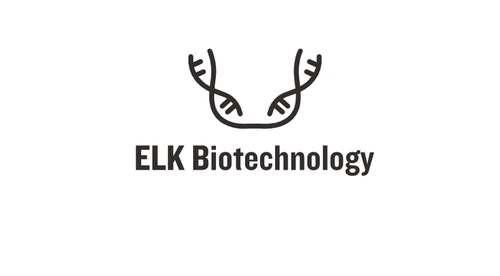Product Description
Human Resistin (RETN) ELISA Kit | AE22449HU | Abebio
Species Reactivity: Human (Homo sapiens)
Abbreviation: RETN
Alternative Name: ADSF; FIZZ3; MGC126603; MGC126609; RETN1; RSTN; XCP1; C/EBP-epsilon regulated myeloid-specific secreted cysteine-rich protein precursor 1|found in inflammatory zone 3
Application: ELISA
Range: 0.156-10 ng/mL
Sensitivity: 0.056 ng/mL
Intra-Assay: ≤4.5%
Inter-Assay: ≤8.0%
Recovery: 0, 93
Sample Type: Serum, Plasma, Other biological fluids
Detection Method: Sandwich
Analysis Method : Quantitive
Test Principale: This assay employs a two-site sandwich ELISA to quantitate RETN in samples. An antibody specific for RETN has been pre-coated onto a microplate. Standards and samples are pipetted into the wells and anyRETN present is bound by the immobilized antibody. After removing any unbound substances, a biotin-conjugated antibody specific for RETN is added to the wells. After washing, Streptavidin conjugated Horseradish Peroxidase (HRP) is added to the wells. Following a wash to remove any unbound avidin-enzyme reagent, a substrate solution is added to the wells and color develops in proportion to the amount of RETN bound in the initial step. The color development is stopped and the intensity of the color is measured.
Product Overview: Resistin, a novel adipose-derived protein, has been proposed to cause insulin-resistant states in obesity. Resistin is produced by white and brown adipose tissues but has also has been identified in several other tissues, including the hypothalamus, pituitary and adrenal glands, pancreas, gastrointestinal tract, myocytes, spleen, white blood cells and plasma. Resistin antagonizes insulin action, and is down regulated by rosiglitazone and peroxisome proliferator-activated receptor gamma agonists. Resistin is elevated in patients with type 2 diabetes and may play a role in the vascular complications of this disorder. Recently, resistin has been discussed controversially as a missing link between obesity and insulin resistance.
Stability: The stability of ELISA kit is determined by the loss rate of activity. The loss rate of this kit is less than 5% within the expiration date under appropriate storage condition. The loss rate was determined by accelerated thermal degradation test. Keep the kit at 37°C for 4 and 7 days, and compare O.D.values of the kit kept at 37°C with that of at recommended temperature. (referring from China Biological Products Standard, which was calculated by the Arrhenius equation. For ELISA kit, 4 days storage at 37°C can be considered as 6 months at 2 - 8°C, which means 7 days at 37°C equaling 12 months at 2 - 8°C) .
 Euro
Euro
 USD
USD
 British Pound
British Pound
 NULL
NULL












